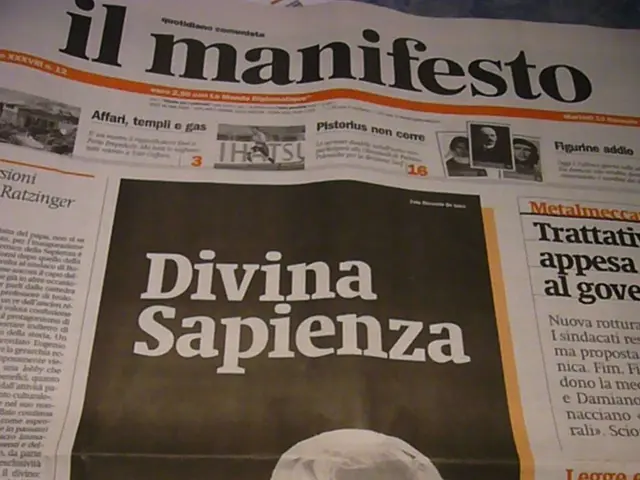Potential development of an economic system within the EU based on warfare
In recent years, Europe has embarked on a significant defense rearmament journey, a move that could potentially reshape the continent's strategic landscape and have far-reaching implications for NATO.
The concept of the ratchet effect, as proposed by economist Robert Higgs, adds to the concern of a growing military-industrial complex. This theory suggests that government size and spending never fully revert to their pre-crisis levels after a crisis occurs, raising questions about the long-term impact of Europe's defense rearmament on fiscal reform.
The rearming effort comes at a challenging time for Europe, with various countries grappling with fiscal crises. The urgent increase in military spending could lead to social frustrations due to decreased public spending, potentially causing a strain on the continent's economic stability.
A notable aspect of Europe's defense rearmament is the shift towards buying more defense equipment from domestic manufacturers. The 150 billion-euro loan from the European rearmament plan includes a 'Buy European' clause, which could exclude non-EU weapons makers. However, European NATO countries have traditionally relied heavily on U.S. companies for their defense needs, averaging around two-thirds of their purchases.
The European Security and Defense Policy, pushed by France and Britain in 2000, was met with clear warnings from Washington, with threats of the end of NATO looming. Yet, the EU defense project, if successful, could potentially reshuffle NATO in six to seven years.
However, the path to success is not without challenges. Issues related to coordination and excessive bureaucracy might contribute to the failure of the project. President Dwight Eisenhower's 1961 warning about the potential dangers to democracy of a 'military-industrial complex' still resonates today.
The new 'escape clause' allows defense spending to be excluded from the deficit calculations under European fiscal rules, which cap deficits at 3 percent of GDP. This provision could provide some financial relief to countries undertaking the defense rearmament.
Meanwhile, the U.S. Secretary of State Madeleine Albright cautioned European leaders against a European common defense policy in 1998, stating no discrimination against non-EU NATO members, no duplication of NATO functions, and no decoupling of Europe from the alliance.
Not all EU members are on board with the defense rearmament. Germany, currently the economic powerhouse of Europe, is skeptical about direct borrowing through EU programs. However, Germany, along with France, is seen as crucial for the strengthening of European defense.
Some EU members, like Slovakia, show reservations about EU measures related to Russia, but this seems to be more about sanctions than defense industry strengthening itself.
In conclusion, Europe's defense rearmament is a complex issue with potential benefits and challenges. The journey towards strategic autonomy could reshape NATO, but it also risks straining Europe's economic stability and political relations with its allies. The path ahead requires careful navigation and a balanced approach.
Read also:
- United States tariffs pose a threat to India, necessitating the recruitment of adept negotiators or strategists, similar to those who had influenced Trump's decisions.
- Weekly happenings in the German Federal Parliament (Bundestag)
- Southwest region's most popular posts, accompanied by an inquiry:
- Discussion between Putin and Trump in Alaska could potentially overshadow Ukraine's concerns








